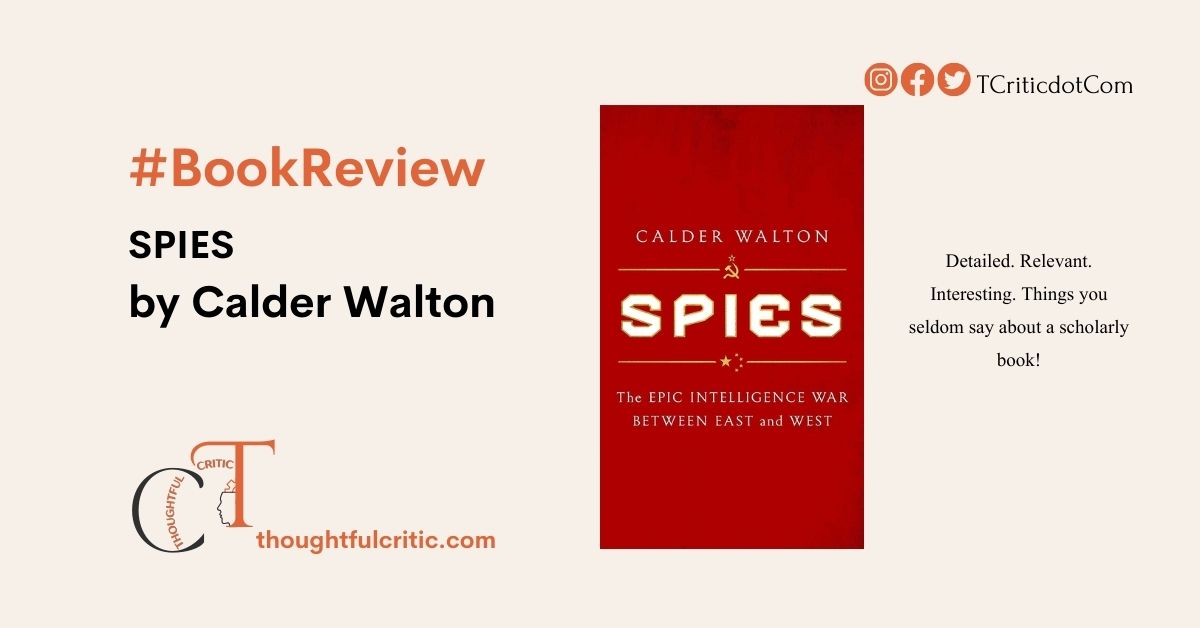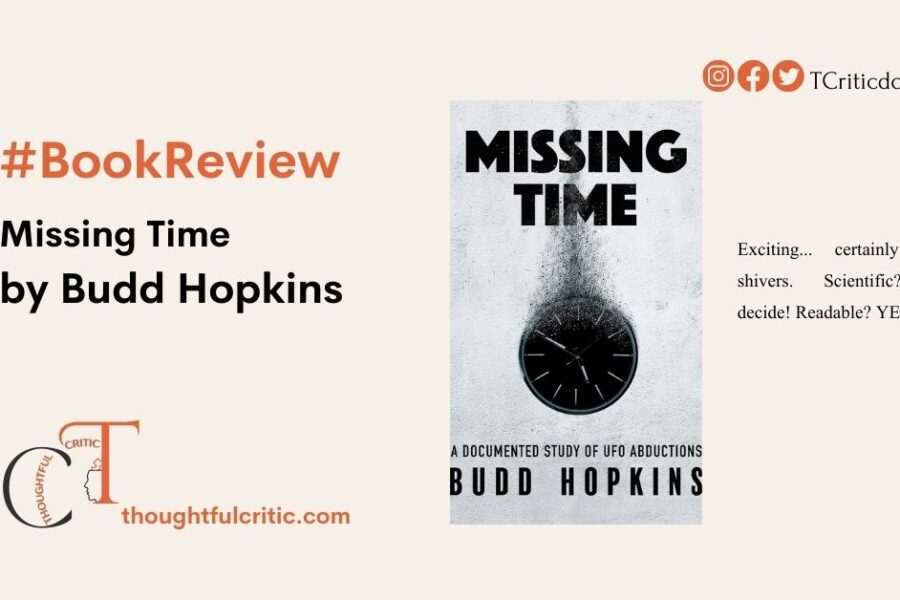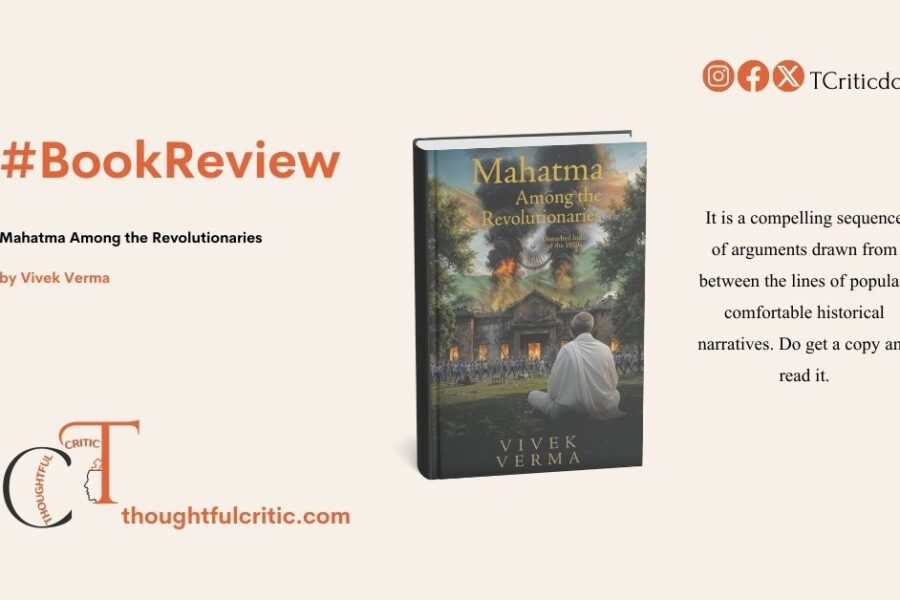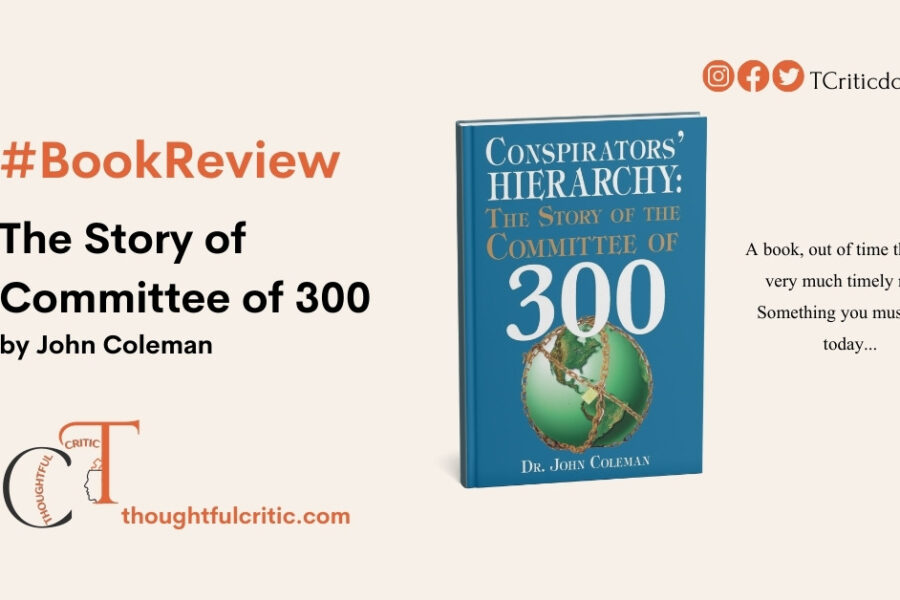Title: Spies: The Epic Intelligence War Between East and West
Author: Calder Walton
Publisher: Simon & Schuster
Genre: Non-fiction, Scholarly, Espionage
Publication Date: June 6, 2023
Pages: 688
ISBN: 978-1668000694
Calder Walton’s “Spies: The Epic Intelligence War Between East and West” is an in-depth and meticulously researched examination of the secretive struggles that shaped the global power dynamics throughout the 20th and early 21st centuries. Drawing on his expertise as a respected historian specialising in history, Walton presents a captivating and in-depth account of the turbulent era from the Cold War to the contemporary. This narrative intricately elucidates the covert intelligence activities carried out by major world powers, providing a rich and compelling portrayal of espionage operations across the globe.
Structure and Content:
The book is structured chronologically and thematically, providing a coherent and accessible framework for readers to navigate the complex history of espionage. Walton begins with the origins of modern intelligence agencies, tracing their development and operational tactics through major historical milestones such as World War II, the Cold War, the fall of the Soviet Union, and the rise of new global threats in the 21st century.
Walton excels in interweaving personal anecdotes with broader historical analysis. He delves into the lives and careers of notable spies, double agents, and intelligence officers from both sides of the Iron Curtain, providing vivid portraits that bring the shadowy world of espionage to life. Figures like Kim Philby, Aldrich Ames, and Oleg Gordievsky are meticulously examined, offering insights into their motivations, methods, and ultimate impact on the intelligence war.
Key Themes and Analysis:
One of the book’s central themes is the technological evolution of espionage. Walton explores how advancements in technology have continually reshaped the methods and capabilities of intelligence agencies. The narrative highlights the constant race for technological superiority, from early codebreaking efforts and spy planes to the modern cyber warfare and satellite surveillance era.
Another significant theme is the moral and ethical dimensions of espionage. Walton does not shy away from addressing the controversial aspects of intelligence operations, including the use of torture, covert assassinations, and the ethical implications of mass surveillance. He presents a balanced view, acknowledging the necessity of intelligence work while also critiquing its excesses and failures.
Research and Sources:
Walton’s extensive research is evident throughout the book. He draws on a wealth of declassified documents, archival materials, and firsthand accounts, providing a robust foundation for his analysis. Including recently declassified information adds a layer of freshness and relevance to the narrative, offering new perspectives on well-known events and uncovering previously hidden aspects of intelligence history.
Writing Style and Accessibility:
The writing in this piece is captivating and comprehensive, effectively capturing the general public’s interest and more scholarly audiences. Walton’s ability to convey complex operations and technical information clearly and succinctly makes the material accessible without sacrificing depth. In addition, using maps, photographs, and diagrams further enriches the reader’s understanding and involvement with the content.
Critical Reception:
“Spies” has been widely praised for its depth and breadth of coverage. Critics have lauded Walton’s ability to synthesise information into a coherent, compelling narrative. The book’s attention to detail and the inclusion of diverse perspectives from both Eastern and Western intelligence communities have been particularly noted as strengths.
Nevertheless, some potential shortcomings do exist in the book. While a strength, the book’s extensive detail and thoroughness can also be a drawback for some readers, as the dense information and numerous personal anecdotes might be overwhelming, particularly for those without a strong background in the subject. Despite Walton’s efforts to provide a balanced view, some critics have noted that the narrative occasionally leans more heavily on Western perspectives and sources, potentially leading to a less comprehensive understanding of the Eastern bloc’s intelligence operations and viewpoints. Additionally, although the book includes recently declassified information, some reviewers have pointed out that it does not always offer radically new insights or revelations for readers familiar with Cold War and intelligence history. While Walton addresses the moral and ethical dimensions of espionage, some readers might feel that these discussions are not as deeply explored as they could be, given the complexity of the subject. Furthermore, the book’s focus on high-profile spies and dramatic espionage events might overshadow the broader, more mundane aspects of intelligence work, potentially giving a somewhat skewed representation of the field. Despite these critiques, the book remains a compelling and authoritative account of the intelligence war between East and West.
The Author:
Calder Walton is highly regarded as a historian and expert in intelligence history, particularly for his work on the Cold War and modern intelligence operations. He has an impressive academic background, having completed his PhD at the University of Cambridge and was involved in significant archival research. Walton has contributed extensively to scholarly journals and publications on intelligence and international history, earning recognition for his meticulous research and insightful analysis. His previous works, including “Empire of Secrets: British Intelligence, the Cold War, and the Twilight of Empire,” have been well-received by critics and peers for their depth and clarity. Additionally, Walton’s role as the Assistant Director of the Applied History Project at Harvard University’s Kennedy School has further cemented his reputation as a leading authority in intelligence history.
Recommendation:
I highly recommend “Spies” to historians, intelligence professionals, students of international relations, and general readers interested in espionage and geopolitical history. This book educates and entertains, providing a rich and nuanced understanding of the covert operations that have influenced modern history.
Conclusion:
“Spies: The Epic Intelligence War Between East and West” is an exemplary work of historical scholarship that offers an in-depth look into the secretive world of espionage. Calder Walton’s meticulous research, engaging writing, and ‘balanced’ analysis make this book an essential read for anyone interested in the history of intelligence and its profound impact on global affairs. Though there may be some issues here and there that readers may point out, the book’s merit and the author’s good work deserve applause! It is a definitive account of the epic intelligence struggle that has shaped and continues to shape our world.
Click here to get a copy from Amazon India.
Review by Anand for Thoughtful Critic
—
Spies: The Epic Intelligence War Between East and West by Calder Walton Book Review
-
Rating
Summary
Aspects of the book might depend on your personal beliefs and alignments. Otherwise, it is a detailed and well-written account of the Cold War. A must-read if you are an intelligence enthusiast!




